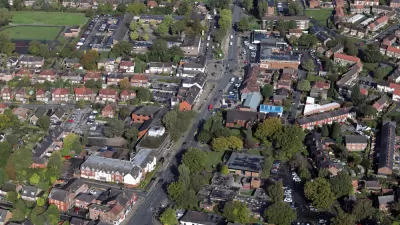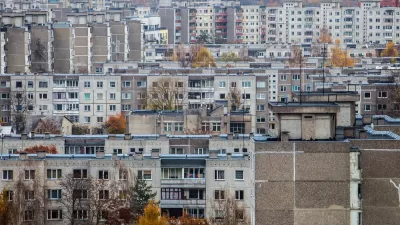Planetizen and Planetizen Courses teamed up to film this short video that aims to clarify the field of urban planning in a world full of plans and planning.
As a long-time observer and writer on the subject of planning in all its forms, I long ago accepted the idea that improving my understanding of urban planning is a path toward a more impactful and positive role in the community, the city, and the world. One of the persistent goals of my career has to provide clear and simple access to this field's most complex stories. Doing so is a constant challenge, frequently because of a widespread lack of foundational knowledge in the subject. Most people just have very little idea what a planner is, what planners do, and how professional and academic planning differs from the more mundane planning required of every single day in life.
Most commonly, "city planners" are described generically and usually as a sort of token or shorthand for bureaucrats or elected officials with the power to envision a desirable future and set cities and communities on a path toward realizing that vision. Maybe that shorthand is useful for conceptualizing the ambitions of the field of planning, while acknowledging that the reality of the job is probably far out of line with that ideal. The video above proceeds by accepting that shorthand as the foundational knowledge upon which to build a more incisive understanding of urban planning.
With this video, we hoped to provide a resource for planners to cite in the need of a simple explanation of their work. We also hope that non-planners, hoping to improve their civic acumen and the language to wield their democratic rights, will also find here an aperture for a lifetime of study and learning about the role of urban planning in the built and natural environments.
FULL STORY: What Is Planning?

Manufactured Crisis: Losing the Nation’s Largest Source of Unsubsidized Affordable Housing
Manufactured housing communities have long been an affordable housing option for millions of people living in the U.S., but that affordability is disappearing rapidly. How did we get here?

Americans May Be Stuck — But Why?
Americans are moving a lot less than they once did, and that is a problem. While Yoni Applebaum, in his highly-publicized article Stuck, gets the reasons badly wrong, it's still important to ask: why are we moving so much less than before?

Using Old Oil and Gas Wells for Green Energy Storage
Penn State researchers have found that repurposing abandoned oil and gas wells for geothermal-assisted compressed-air energy storage can boost efficiency, reduce environmental risks, and support clean energy and job transitions.

Poorest NYC Neighborhoods Pay Price for Delivery Boom
The rise of ‘last-mile’ e-commerce warehouses — and their attendant truck traffic and air pollution — is disproportionately impacting the most historically disadvantaged parts of the city.

Greening Oakland’s School Grounds
With help from community partners like the Trust for Public Land, Oakland Unified School District is turning barren, asphalt-covered schoolyards into vibrant, green spaces that support outdoor learning, play, and student well-being.

California Governor Suspends CEQA Reviews for Utilities in Fire Areas
Utility restoration efforts in areas affected by the January wildfires in Los Angeles will be exempt from environmental regulations to speed up the rebuilding of essential infrastructure.
Urban Design for Planners 1: Software Tools
This six-course series explores essential urban design concepts using open source software and equips planners with the tools they need to participate fully in the urban design process.
Planning for Universal Design
Learn the tools for implementing Universal Design in planning regulations.
Heyer Gruel & Associates PA
City of Moreno Valley
Institute for Housing and Urban Development Studies (IHS)
City of Grandview
Harvard GSD Executive Education
Salt Lake City
NYU Wagner Graduate School of Public Service
City of Cambridge, Maryland





























